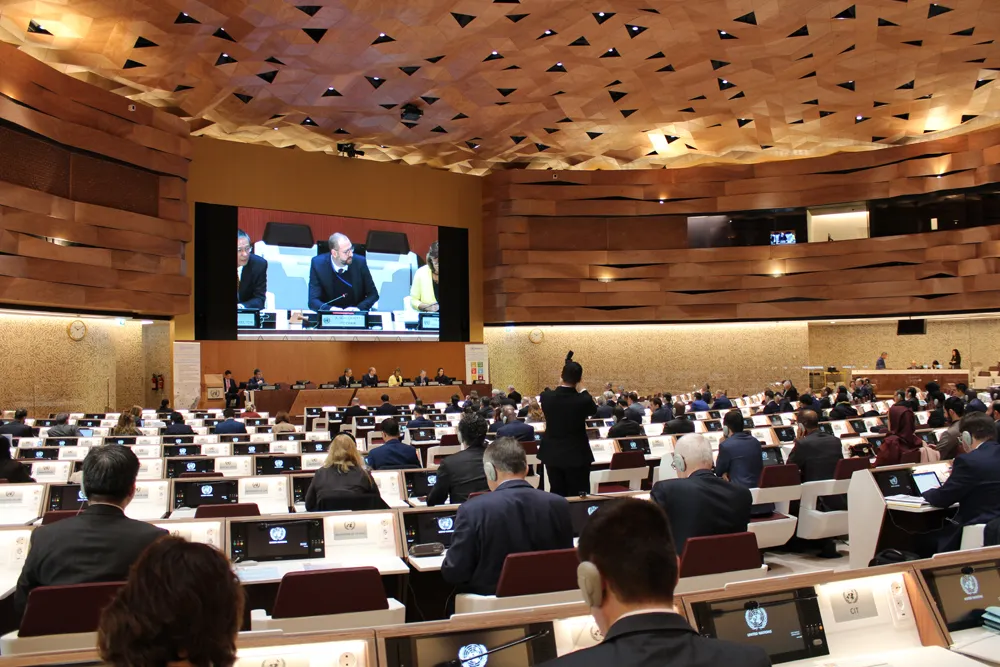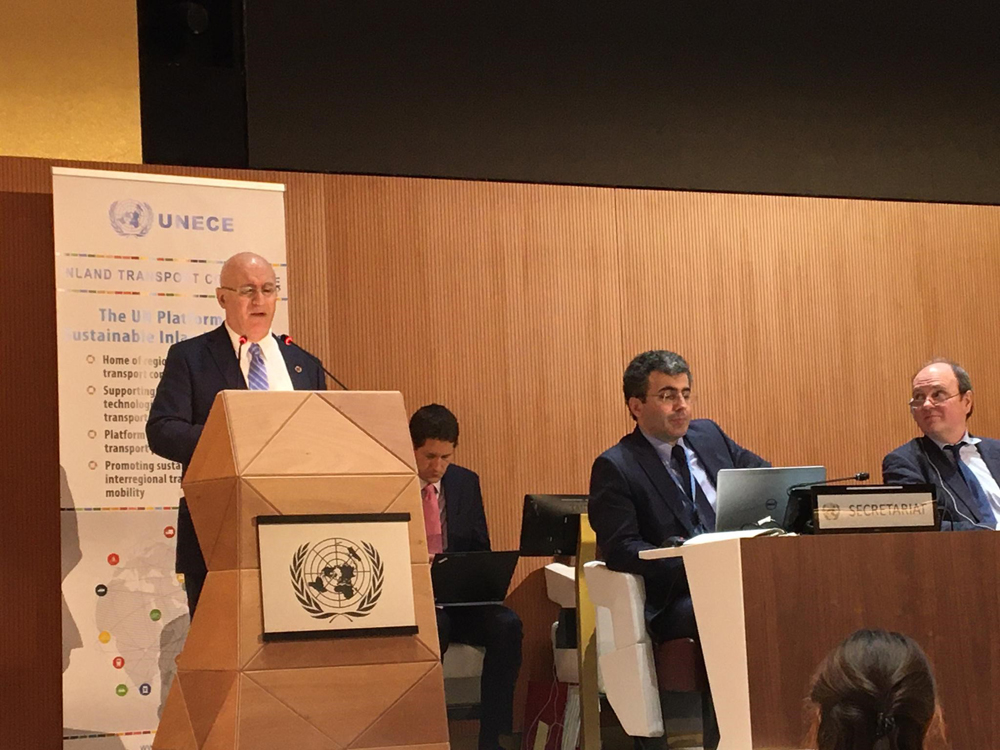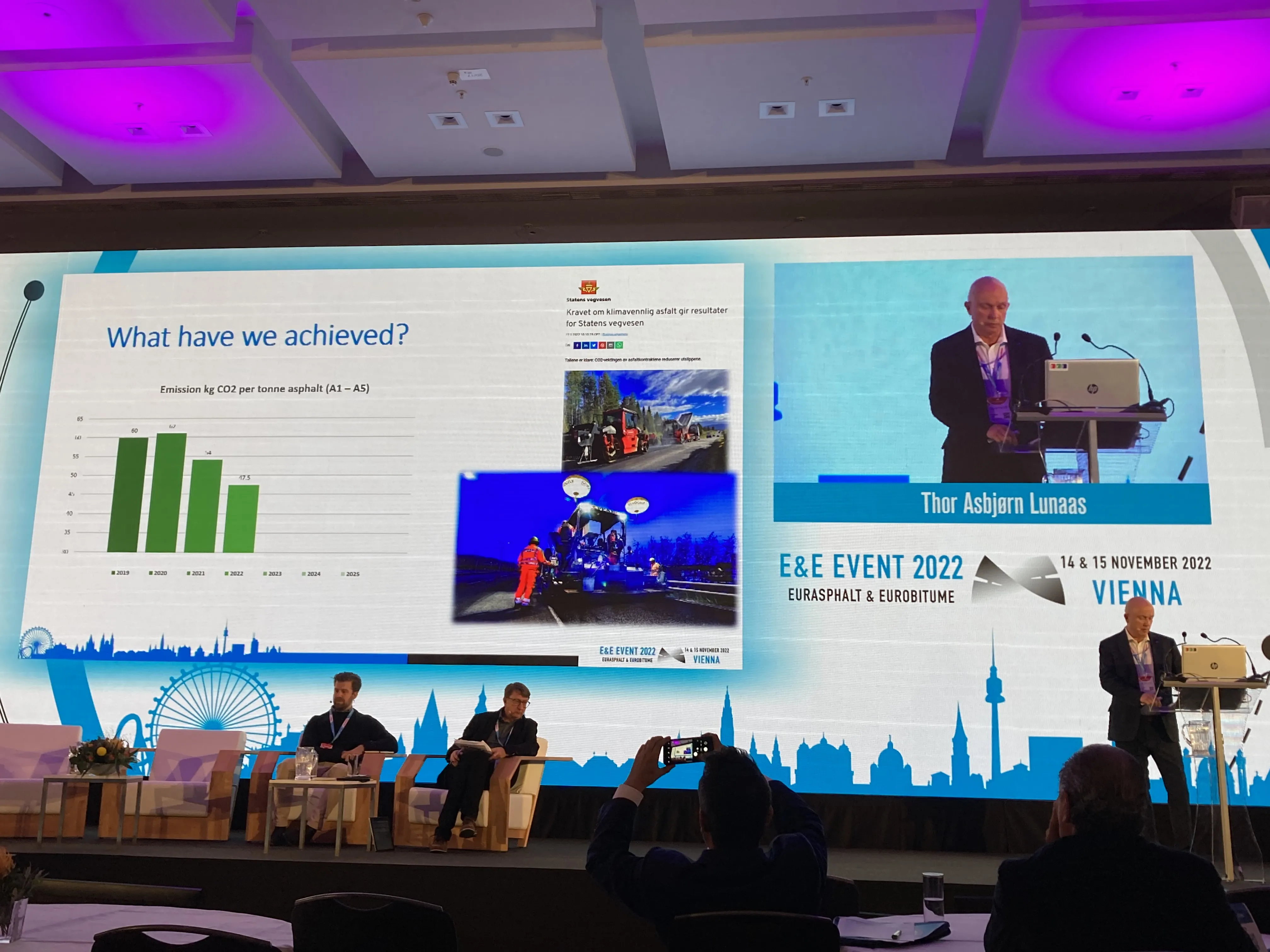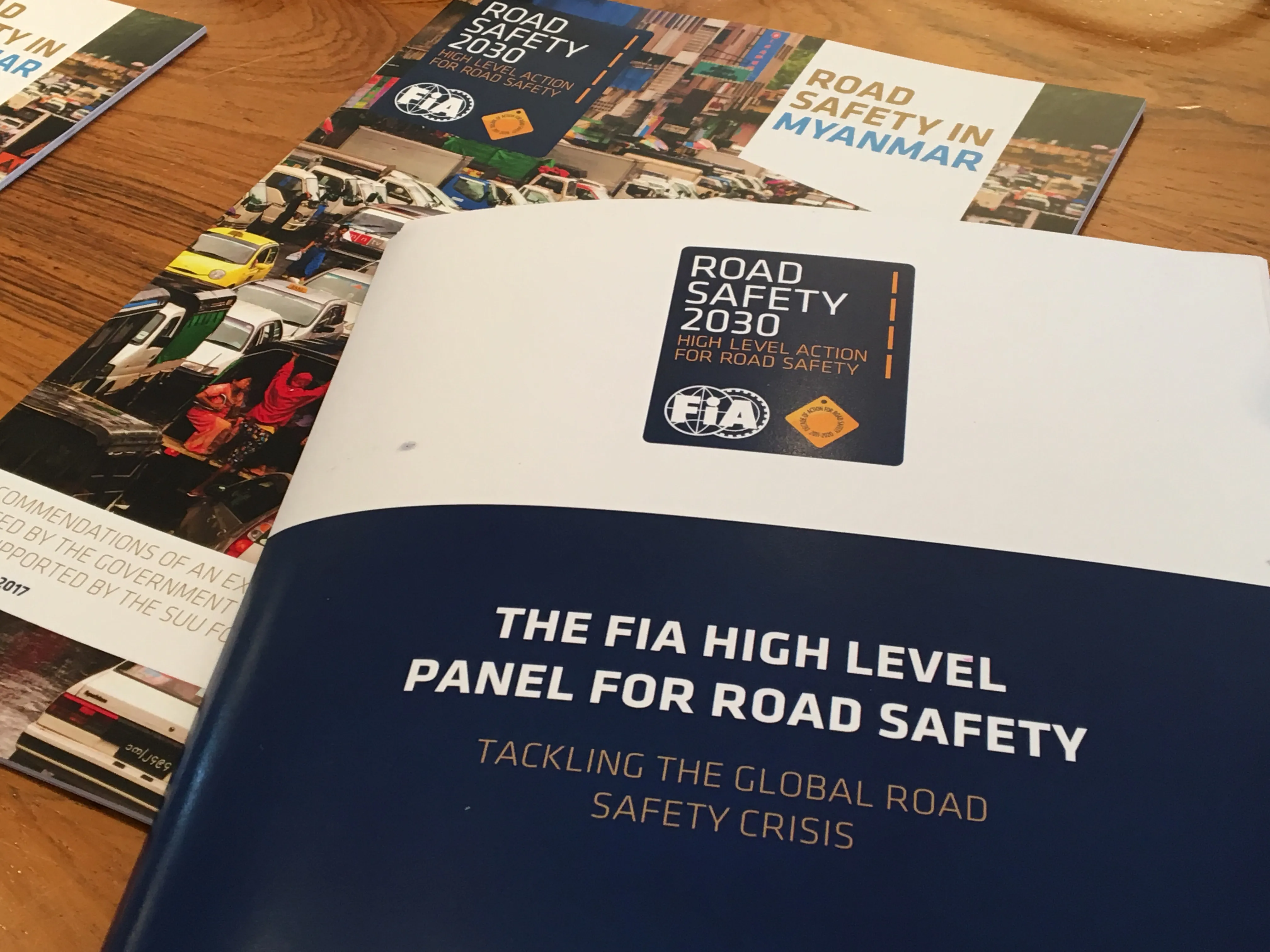
The effects of climate change on transport — from compromised infrastructure, to reduced access and connectivity, to poor road safety and beyond — are already being felt in every region of the world. Improving the environmental performance of transport, in addition to improving accessibility, efficiency and safety in inland transport systems, are of paramount importance to meeting the Sustainable Development Goals.
To address this challenge, the Inland Transport Committee (ITC) made the “Environmental challenges to sustainable inland transport” the focus of its high-level policy segment. Discussions covered adaptation measures to climate change, emissions mitigation and the role of the Committee to harness international cooperation to fight climate change.
To limit average global temperatures to a 1.5°C increase above pre-industrial levels, the Intergovernmental Panel on Climate Change (IPCC) reported in 2018 that low-emission final energy in the transport sector would need to comprise a 35–65% share in 2050. This is compared to just 5% in 2020.
ITC, in its role as the highest UN policy-making body in the field of inland transport, the equivalent of ICAO for air and IMO for maritime transport, supports and develops conventions and agreements that catalyse innovative solutions to this problem.

Speaking in the panel, “What role for transport innovations in addressing effectively environmental and climate challenges?” IRF president, Bill Halkias focused on the key role for digital revolution (AI, big data, BIM, cloud computing and analytics). He said this is a game-changer for the industry and a winning formula for solving the current infrastructure challenge and delivering a true circular economy.
At the end of the high-level segment, Transport Ministers and High-Level officials from across the globe signed a declaration to make a united call for universal action to address the climate and environmental emergencies.
The declaration recognises the Committee’s relevance as a main avenue of the international efforts to find solutions for these challenges. The declaration calls upon world transport leaders to embrace and intensify their support for the work of the Committee as the UN Platform for Inland Transport, to the benefit of the global community.
Most importantly, the declaration articulates a united call to transport leaders and global initiatives, starting with the
Second Global Sustainable Transport Conference. This is to further strengthen the sustainable development of global transport and catalyse the commitment to the implementation of the Paris Agreement on Climate Change.
During the reminder of ITC week, Member States/Contracting Parties and transport leaders from strategic partners forged common solutions, and shared region and country-specific challenges from around the world. These focussed on the implementation of existing, and the development of new, UN Conventions, and took strategic decisions on cutting-edge areas such as road safety, autonomous vehicles and transport digitalisation.









